In the ever-evolving landscape of construction, sustainability is no longer just a buzzword; it’s a necessity. As directors and project managers in industrial construction, understanding the intricacies of materials like aluminum can significantly impact your projects’ efficiency, cost-effectiveness, and environmental footprint. This article delves into the question: Can you recycle aluminum? We will explore the recycling process, its benefits, and how it stands against other materials, all while providing you with actionable insights to enhance your projects.
Can You Recycle Aluminum? A Step-by-Step Guide
Recycling aluminum is not only beneficial for the environment but also offers substantial economic advantages for construction projects. Here’s a comprehensive guide on how to effectively recycle aluminum in your operations.
Preparing Your Aluminum Items for Recycling
Before you can recycle aluminum, proper preparation is essential. Start by collecting all aluminum items, which may include cans, window frames, and scrap from construction sites. Ensure that these items are clean and free from contaminants like food residue or paint. This step is crucial as impurities can affect the quality of recycled aluminum.
- Gather Materials: Collect all aluminum waste from your site.
- Clean Items: Rinse off any residue or contaminants.
- Remove Non-Aluminum Parts: Take off plastic or rubber components attached to the aluminum.
Sorting Aluminum from Other Recyclables
Sorting is a vital step in the recycling process. Different types of aluminum can be recycled together, but they must be separated from other materials like plastics and steel.
- Identify Aluminum Types: Familiarize yourself with different aluminum grades (e.g., wrought vs. cast).
- Use Color-Coded Bins: Implement a color-coded system for easy identification and sorting.
- Train Staff: Ensure that your team understands the importance of proper sorting.
Finding Local Aluminum Recycling Centers
Once your aluminum is prepared and sorted, the next step is finding a recycling center. Many municipalities have established facilities dedicated to recycling metals.
- Research Local Facilities: Use online resources or local government websites to identify nearby recycling centers.
- Check for Certification: Ensure that the facility adheres to environmental regulations and standards.
- Schedule Drop-Offs or Pick-Ups: Coordinate logistics for transporting your sorted aluminum.
Transporting Your Aluminum for Recycling
Transporting your recycled materials efficiently can save time and costs. Here are some tips:
- Use Appropriate Containers: Utilize sturdy bins or pallets to prevent damage during transport.
- Plan Routes Wisely: Optimize delivery routes to minimize fuel consumption.
- Track Your Loads: Keep records of what you send for recycling to measure your contributions toward sustainability.
Read more Blog & New:
Benefits of Aluminum Recycling
Recycling aluminum offers numerous advantages that align with modern construction goals.
Positive Environmental Impacts of Aluminum Recycling
Recycling aluminum significantly reduces energy consumption and greenhouse gas emissions compared to producing new aluminum from bauxite ore. According to studies, recycling saves up to 95% of the energy required for primary production. This reduction plays a crucial role in mitigating climate change impacts associated with construction activities.
Economic Advantages of Aluminum Recycling
The economic benefits are equally compelling. By incorporating recycled aluminum into your projects, you can lower material costs significantly:
- Cost Savings: Recycled aluminum typically costs less than virgin aluminum due to reduced processing expenses.
- Market Demand: The demand for sustainable materials continues to rise; using recycled materials can enhance your project’s marketability.
Societal Benefits of Supporting Aluminum Recycling
Engaging in recycling initiatives fosters community goodwill and enhances corporate social responsibility (CSR). By promoting sustainable practices, companies can improve their public image and attract environmentally conscious clients.
Aluminum vs. Other Recyclable Materials: Steel, Tin, Glass, and Plastic
When considering recyclable materials for construction projects, it’s essential to compare their benefits effectively.
Comparing Aluminum and Steel Recycling
While both metals are recyclable, aluminum has distinct advantages:
- Energy Efficiency: Recycling aluminum requires significantly less energy than steel—only 5% of what is needed for new production.
- Quality Retention: Aluminum maintains its properties through multiple recycling processes without degradation.
Understanding Tin Can Recycling
Tin cans are commonly recycled but often require additional processing compared to aluminum:
- Contamination Issues: Food residues can complicate tin recycling.
- Lower Value: The market value of recycled tin is generally lower than that of aluminum.
Contrasting Aluminum Recycling with Glass and Plastic
Aluminum stands out against glass and plastic in several ways:
- Infinite Recyclability: Unlike glass and plastic, which degrade over time, aluminum can be recycled indefinitely without loss of quality.
- Lower Carbon Footprint: The carbon emissions associated with recycling aluminum are significantly lower than those from glass or plastic production.
For further consultation on sourcing high-quality recycled aluminum at competitive prices or optimizing your construction designs with sustainable materials, contact Cozydoor today! Fill out our inquiry form to receive personalized advice tailored to your project needs.
This structured approach ensures that directors and project managers like you are equipped with the knowledge needed to make informed decisions about material sourcing while contributing positively to environmental sustainability in construction.

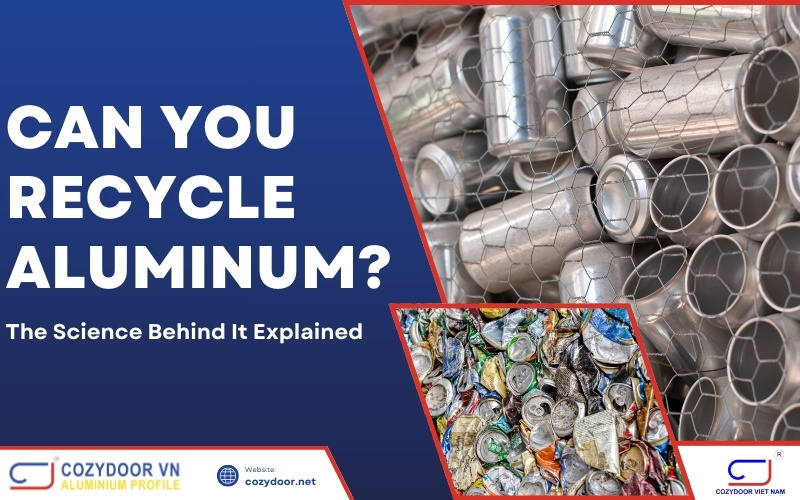
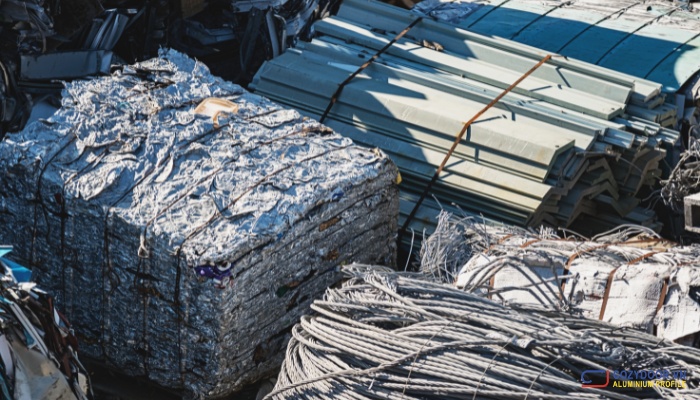



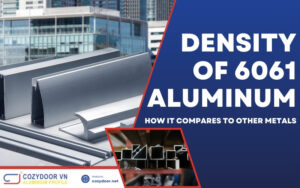


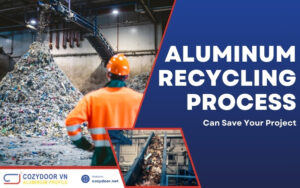

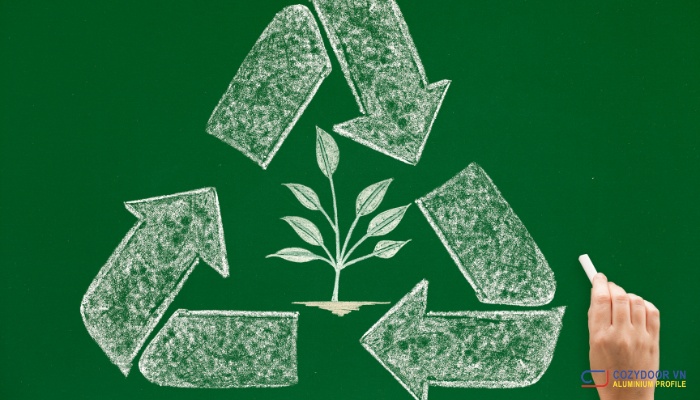
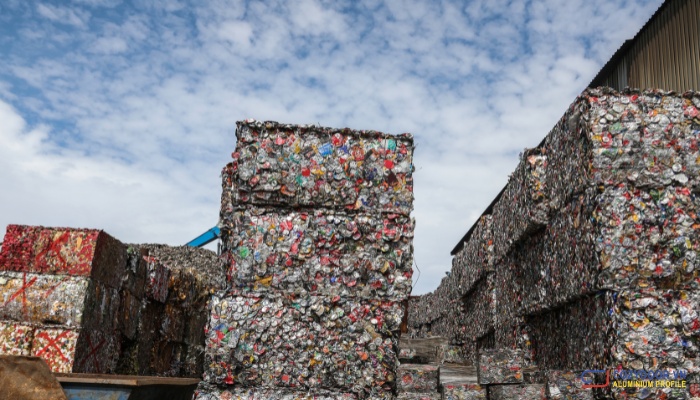
How Is Aluminum Mined? A Simple Overview
Understanding “how is aluminum mined” is more than just a [...]
Nov
Power of Aluminium Die Casting
Are you a construction professional looking to optimize your projects [...]
Nov
7 Proven Ways Aluminum Foil Material Elevates Your Projects
This comprehensive guide unveils seven ways aluminum foil material can [...]
Nov
The Power of Miniature Extrusions in Construction
What are Miniature Extrusions? Miniature extrusions are precision-engineered aluminum profiles [...]
Nov
Anodized Aluminum: A Sustainable Material Choice
Are you tired of battling escalating material costs, tight deadlines, [...]
Nov
Mastering Aluminum Heat Transfer in Industrial Construction
Project managers and directors, imagine a world where temperature control [...]
Nov
How is Aluminum Produced? Aluminum Production
Aluminum isn’t simply dug out of the ground like gold. [...]
Nov
The Ultimate Guide to Stainless Steel Recycling
Why Stainless Steel Recycling Matters in Today’s Construction Industry As [...]
Nov